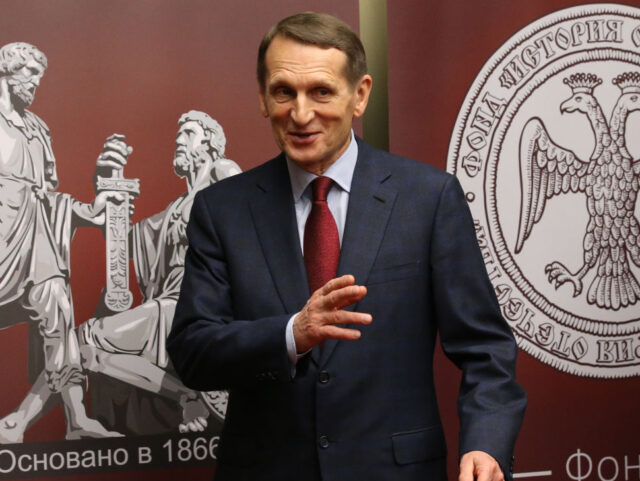The director of Russia’s foreign intelligence service claimed he had an hour-long call with CIA director William Burns to talk about the Wagner rebellion and “what should be done about Ukraine”.
Following previous claims that CIA director William Burns proactively reached out to Moscow following the shortlived insurrection by the Wagner mercenaries last month to reassure Russia that the United States wasn’t sponsoring the uprising, Burns’ opposite number claims that event was actually just a “pretext” for the conversation. In a statement published by Russian state media, the spy boss claimed the majority of the call was not about the Wagner uprising at all, and actually discussed “Ukraine and events around it”.
The major claims by Russian foreign intelligence agency boss Sergey Naryshkin were that the call lasted “about an hour” and that the two spymasters “gave some thought to and deliberated on what should be done about Ukraine”.
These claims, obviously, are purely on the say-so of Naryshkin: while the existence of call was earlier reported by U.S. intelligence community-adjacent publications the Wall Street Journal and New York Times last month, the CIA has not commented on the claims. The WSJ reports now that there are differences in the account between their sources in the U.S., and the Russian version of events.
The timing of the claims, coming as they did on the final day of the annual NATO summit in Lithuania which saw U.S. President Biden just minutes’ drive from the Belarussian border, suggests they may be intended to undermine Ukrainian confidence in U.S. support. Speaking at the alliance meeting Ukrainian President Volodymyr Zelensky — who had earlier publicly vented his anger at not being admitted to NATO immediately, before being chastised in the public eye by the United Kingdom for being ungracious for the huge material support received — said he would not accept any negotiated end to the war.
Saying he would not settle for less than total victory, Zelensky said he would fight for every piece of recognised Ukrainian territory, even if it was just a lonely village with a population of “one old man”. Zelensky has often said there needs to be Russian accountability for the war and has called for a war crimes tribunal for the Russian leadership, ideas that would be weakened if he believed the U.S. was having secret war talks with Russia behind his back.
The United States has previously been moved to deny it is having secret peace talks with Russia after CIA boss Burns met with Russia’s Naryshkin in person in Turkey in late 2022.
While high-level discussions between spymasters over Ukraine may seem extraordinary given worsening relations between East and West following Russia’s re-invasion of Ukraine from last year, they are with abundant precedent going back to the Cold War. The well-known Moscow-Washington hotline, portrayed in fiction as the ‘red telephone’, allowed rapid communication between powers as a means of de-escalating tensions and decreasing the likelihood of inadvertent nuclear war and survives to this day, even if it is little used.

COMMENTS
Please let us know if you're having issues with commenting.